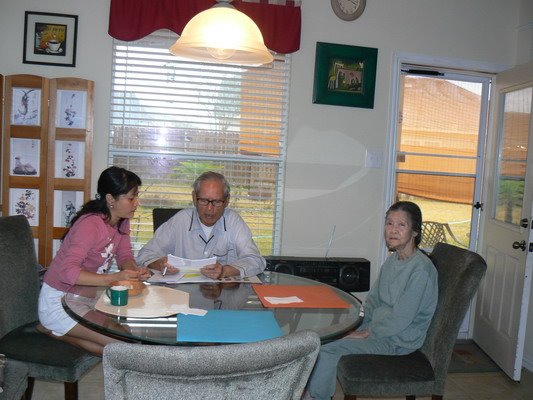QUY
However, on artistic evaluation, Quy maintained her own preference. On the day when Bich To finished practicing a whole piece, Bich To had a big smile on her face, telling her: “Let me play for you!” There are all intermediate-level classical piano pieces from major composers introduced in Classiques Favoris du Piano book volume 4, 5, 6. At times, Quy commented (based on her own liking) after her daughter finished playing a piece. But often, she listened and commented right alongside Bich’s playing: “Oh, this section sounds like a drawing of musical amulet (vẽ bùa âm thanh. She said: amulet (bùa làm mê người”), I don’t like it…. Wow, this part sounds elevated! Oh no, the banging piano sounds like a hammer strike, I don’t like it. Oh, this part is good, like birds’ twitting!” Through Quy’s sound assessment and direct critique, her nieces and her own brother, discovered that Quy had a sharp intuition to figure out which passage was technically challenging, which passage was sentimentally refined; the technical part played a role in creating a balanced harmony, “talented boss, skillful servant.”
One time in the anti-revolutionary” era (before 1975), Quy along with other teachers of English were invited to visit a few colleges of pedagogy in the central of Vietnam. When the bus passed by the coconut grove in Tam Quan, Cham Muslim stupa in Binh Dinh, suddenly Quy’s heart sank as if the darkness descended on her, opening up a scene covered in blood and bones of the oppressed, then assimilated. Quy imagined sitting underneath the shade of a coconut tree, listening to a nearby bamboo tree, rustling in a soft breeze, feeling her whole life passing by swiftly like a swinging shuttle.
Trích "Đi"
Tác Giả: Doãn Quốc Sỹ
Dịch Giả: Doãn Thị Quý và gái Ngọc



No comments:
Post a Comment